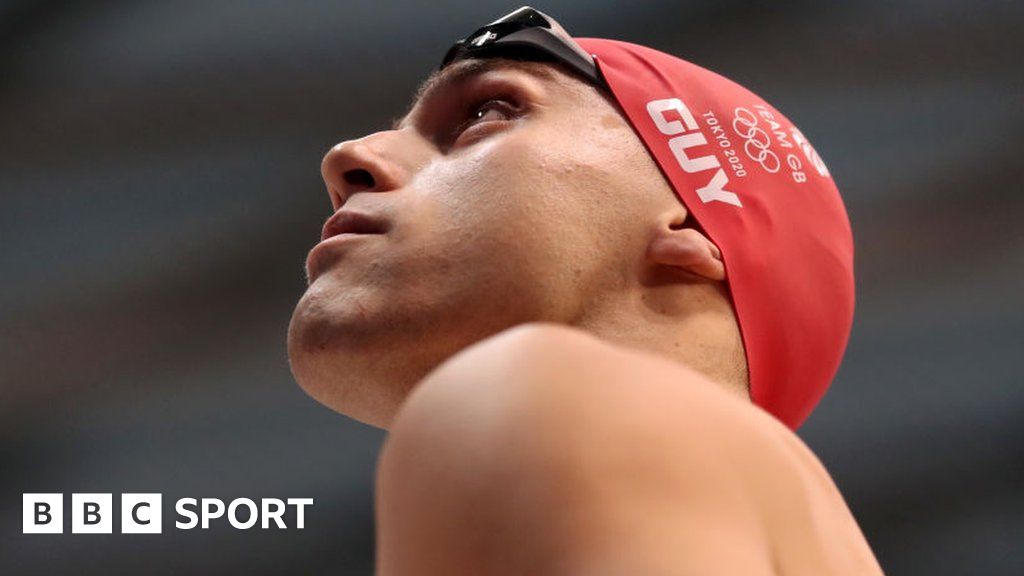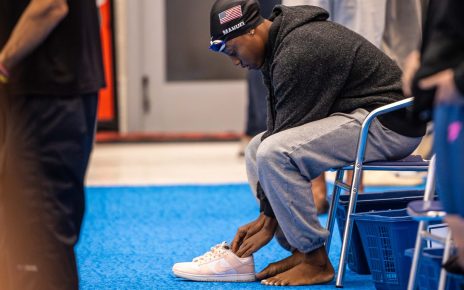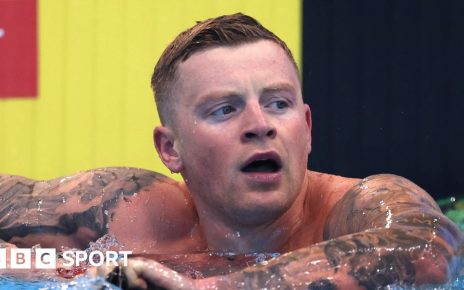By the time James Guy turned 24, he had smashed British Swimming records and become a world and European champion. Deep down, though, he still felt something was not quite right.
That year, life finally began to make sense for Guy as he was diagnosed with attention deficit hyperactivity disorder (ADHD).
Looking back now as a double Olympic champion, 28-year-old Guy realises that he was never broken. He was just different.
It is estimated that at least one in seven people in the UK are neurodivergent. This term describes someone who thinks differently because of conditions including autism, dyslexia, dyspraxia and ADHD.
While a diagnosis has helped Guy understand himself, growing up without it took a lasting toll.
“At around the age of 15 I was put in study support lessons for extra help at school because I wasn’t the brightest guy in the world,” he tells BBC Sport.
“I found things difficult to understand and needed the teacher to repeat themselves four times, just to soak it in.
“I felt left out. My friends would laugh and take the mick. I didn’t take notice of it because they were my best mates, but it was quite embarrassing.”
Though his school was accommodating, Guy believes there were not enough resources to identify his ADHD at the time.
As he entered his 20s, he found his symptoms persisting outside of the educational setting and affecting everyday life. With that returned the longing for an answer.
“In my day-to-day life, I can be very easily distracted,” he says. “I’ll start one job, not finish it, do another thing, and not finish it. I’m trying my hardest, but I can’t help it at all.
“Even if Courtney (his fiancee) is talking to me, she’ll say, ‘Are you listening?’ I’d be like ‘Yeah’ and she’d say, ‘Well what did I say?’ and I’m like ‘er…’ – not in a rude way but because my brain diverges.
“I told my psychologist that I’m either 10 miles an hour ahead or 10 miles an hour behind. There is no in between.”
In the following four years, a diagnosis has allowed Guy to fully embrace life in the pool with ADHD and for British Swimming to tailor support to his needs.
“I find it hard to sit still and I have to be doing something all the time and that is why swimming is really good for me,” he says. “When I go home, because I’m so mentally tired, I can sit on the sofa and relax.
“If Ryan (his coach) is reading something out the first time, it’s never going to go in my brain. I need to physically see it and have it repeated.
“I love what I do every single day. The thrill you get after having a good session is massive. It’s very rare I have a bad day.”
Guy will be competing at the British Swimming Championships from 2-7 April, looking to qualify for his third successive Olympics with Team GB.
And through fostering self-acceptance, the 200m freestyle and 100m butterfly specialist has found ways of using ADHD to his advantage, including winning two golds at Tokyo 2020.
“If I’m doing something, I always commit to it 100%. It might take me a while to get there, but you’ll do things properly and not half-heartedly which is a valuable tool in everyday life,” he says.
A diagnosis is not always a neat resolution, as 80% of adults with ADHD have a mental health problem, external at some point in their lifetime.
This is all too familiar for the swimmer who has experienced health anxiety since his mid-20s.
“Sometimes I get really anxious when an important session or race is coming up in six weeks’ time,” he says. “Even though it’s a long time away, my stomach feels bloated, or my appetite goes for a few days.
“It’s not a nice place to be in, but I’ve learned how to acknowledge and manage it.
“Sometimes, I’m really afraid of getting ill because I don’t want to miss anything in the pool. I’ll search my symptoms and have all the medication ready to go.
“I’ll need the doctor to say to me, ‘don’t worry about it, James’. If that support wasn’t there, I would genuinely struggle to deal with it on my own.”
Throughout this journey, Guy stresses the importance of not feeling afraid to talk about neurodivergence or mental health.
“My fiancee, mum, dad and brother have always supported me. They understand I have ADHD and don’t care about it. They love me for who I am.
“Look at the athletes who are doing really well. There are a lot of mental health issues because we’re cocooned in this bubble where we don’t know what real life is.
“We put ourselves through pain every single day. It’s not normal and it’s not how I believe life should be lived.”
This support and awareness mean the days of feeling like an outsider are long gone for Guy. He only wishes he had grown up with it.
“I would tell 12-year-old James to… go and do an ADHD test,” he laughs.
Read more




